Why Corporate Giants Choose Sales Training in Brisbane for Greater ROI?
As we navigate the global business landscape of 2023, where competition is fierce, and every decision impacts the bottom line, corporate giants are increasingly prioritising investments that guarantee a tangible return. One such investment involves enrolling their teams in sales training courses – specifically in Brisbane. Corporate leaders recognize that the effectiveness of their people in navigating this complex environment is directly tied to the quality of their skills.
The program they’re choosing is not without reason; they’re achieving greater Returns on Investment (ROI) than ever before. Sales training courses in Brisbane have emerged as a strategic investment ensuring that teams are equipped with the latest insights and techniques to secure a competitive edge in the ever-evolving marketplace. Let’s unravel the secret behind Brisbane’s booming success in creating sales superstars and driving an impressive ROI.
By investing in sales training courses in Brisbane, corporate giants can tap into the vibrant local business community and leverage opportunities for networking and collaboration to enhance their performance and drive business growth. With different types of courses available, a sales training session is able to target particular things each team needs to improve on.
Why Corporations Invest in Brisbane’s Sales Training
Brisbane, the thriving capital of Queensland, Australia, offers a dynamic business environment that fosters growth and innovation. With its vibrant economy and diverse range of industries, including finance, technology, and retail, the city provides an ideal landscape for corporations looking to improve selling skills. The presence of local as well as international businesses creates a rich ecosystem for networking and collaboration.
But why do these corporate giants choose to invest in Brisbane’s Sales Training? There are several compelling reasons behind this strategic decision.
Firstly, Brisbane’s sales training courses have gained recognition for their quality and effectiveness. Renowned training organisations like Dynamo Selling offer tailored programs that address the specific challenges faced by corporations operating in Brisbane. These training courses go beyond generic sales techniques, they delve into the psychology of sales, understanding customer behaviour, and developing personalised strategies.
When it comes to return on investment (ROI), continuous sales training proves to be a lucrative move for corporations. The competitive nature of the Brisbane market demands advanced sales skills to stay ahead of the competition. With the help of sales training courses and expert sales trainers, corporations equip their sales teams with the tools and information required to effectively engage with customers, build relationships, overcome objections, and close deals effectively.
For instance, imagine a multinational corporation aiming to expand its operations in Brisbane’s financial sector. By providing its sales team with top-notch training specifically designed to navigate the complexities of the local finance industry, this corporation gains a significant competitive advantage. Sales professionals who undergo targeted training gain insights into local market trends and effective selling techniques that resonate with Brisbane-based clients. This ultimately leads to increased sales revenue and greater ROI for the corporation.
Additionally, investing in sales training in Brisbane demonstrates a commitment to professional development and employee engagement. It sends a strong message to sales teams that the corporation values their growth and is invested in their success. By providing opportunities for skills enhancement, and fostering a mindset that embraces continuous learning, corporations can attract and retain top talent, boosting employee morale and overall team performance.
- According to a study by the Sales Management Association, companies that invested in sales training had a 16.7% growth in their annual revenues.
- A research report from the Association for Talent Development found that companies offering comprehensive training programs have 218% higher income than those without it.
- A survey by CSO Insights reported that, over the past five years, companies investing heavily in sales training saw a 10% increase in their win rates.
Key Benefits of Brisbane’s Sales Training
Sales training programs in Brisbane offer a range of benefits for corporations looking to enhance their sales performance and achieve sustainable business growth. Here are some of the main advantages:
- Improved Sales Skills: Sales training equips professionals with a comprehensive range of skills, such as effective communication techniques, negotiation strategies, objection handling, and relationship-building methods. Through sales coaching and an interactive workshop, these skills enable sales teams to engage with customers more effectively and close deals successfully.
- Increased Productivity: Well-trained sales teams are more confident and motivated, which translates into improved productivity. Sales training helps streamline processes, teaches time management strategies, enhances goal-setting abilities, delivery of presentation and increases efficiency within the sales department.
- Enhanced Customer Relationships: Sales training emphasises the importance of building strong customer relationships based on trust and understanding. This leads to increased customer loyalty, repeat business, and positive word-of-mouth referrals.
- Adaptability to Market Changes: The dynamic nature of the Brisbane market requires sales teams to be adaptable and responsive to changing trends and customer demands. Sales training equips professionals with the ability to identify market shifts quickly, adjust their selling approaches accordingly, and stay ahead of the competition.
- Higher Revenue Generation: A well-trained sales team equipped with effective selling techniques is more likely to generate higher revenue for the organisation. Improved closing rates, upselling or cross-selling opportunities contribute to increased financial success.
Skills and Motivation Gains from Sales Training
Sales training programs in Brisbane offer numerous benefits in terms of skills development and motivation for sales professionals. These programs go beyond teaching basic sales techniques and delve into advanced strategies that can significantly impact their performance.
Through effective sales training, professionals can enhance their communication skills to better connect with potential customers. They learn how to articulate the value proposition of their products or services and build long-lasting relationships with clients. By refining their ability to understand customers’ needs and motivations, salespeople can tailor their sales approach accordingly, increasing the likelihood of closing deals.
For instance, a salesperson who undergoes training might learn how to actively listen to client concerns and provide personalised solutions by understanding the unique pain points they face. This level of empathy builds trust and establishes the salesperson as a knowledgeable advisor rather than a pushy salesman, making them a person their clients can trust and communicate effectively with.
Sales training also equips professionals with negotiation skills. This critical component of sales strategies boosts the ability of professionals to reach a mutually beneficial agreement with the customers, leading to enhanced sales results. They learn how to navigate price discussions confidently, which is a key step in sales processes, focus on creating value rather than offering discounts, and handle objections skillfully.
Moreover, motivation is a critical factor in the success of sales teams. When employees receive high-quality sales training tailored to their needs, they gain self-confidence, leading to increased job satisfaction and motivation. They become more driven to accomplish their targets and exceed customer expectations.
Impact of Sales Training on Business Growth
Consider a company that invests in a sales training course for their team in Brisbane. It is a journey, with each step providing crucial skills and knowledge through distinct modules, group activities and interactive workshops. As a result, their salespeople become more adept at identifying potential leads, establishing genuine connections with prospects, and adapting their selling techniques to different customer personas.
Furthermore, sales training enhances customer satisfaction. When sales professionals are trained to understand customers’ needs deeply through their body language, they can provide tailored solutions that address specific pain points. This level of personalised service creates a positive customer experience, fostering loyalty and repeat business.
Sales training also cultivates a culture of continuous improvement within organisations. By regularly updating their sales processes and knowledge through sales training programs, sales professionals stay at the forefront of marketing trends and industry best practices. They develop innovative ways to engage customers, adapt to changing market dynamics, and capitalise on emerging opportunities. This proactive approach not only drives business growth but also positions companies as industry leaders in their respective field.
Strategies for Effective Sales Training Implementation
The success of any sales training program depends not only on the quality of the content but also on how it is implemented within an organisation. Here are some strategies that corporate giants can utilise to ensure effective sales training implementation in Brisbane, with an emphasis on touch, listening, and repetition:
- Assess Training Needs: Before rolling out a sales training program, it is crucial to conduct a thorough assessment of the organisation’s specific training needs. This involves identifying skill gaps, understanding the current sales process, and career aspirations of the sales team, and determining the desired outcomes and goals of the training.
- Customise Training Content: One size does not fit all when it comes to sales training. Tailoring the training content to address specific requirements of the organisation can significantly enhance its effectiveness. It is important to consider factors such as industry-specific knowledge, target audience, and sales techniques relevant to the Brisbane market.
- Engage Sales Leadership: A key element of successful sales training implementation is gaining buy-in and active participation from sales leadership. When leaders visibly support and participate in the training, it creates a culture of continuous learning and reinforces the importance of professional development and career growth.
- Provide Ongoing Reinforcement: Effective sales training goes beyond a one-time event. Continuous reinforcement through follow-up sessions, coaching, and mentoring programs ensures that employees retain the knowledge gained during training and apply it consistently in their day-to-day interactions with customers.
- Measure Impact: To gauge the effectiveness of sales training initiatives, it is crucial to establish key performance metrics and regularly measure progress against these indicators. This allows organisations to identify areas of improvement, make necessary adjustments, and track return on investment (ROI), thus helping verify whether their strategy has been successful in enhancing their employees’ career trajectories.
- Create a Supportive Environment: Sales training should be integrated into an overall culture that promotes ongoing learning and growth. Providing resources such as sales playbooks, online platforms for knowledge sharing, and opportunities for collaboration fosters continuous improvement among sales teams.
By implementing these strategies effectively within their organisations, corporate giants can maximise the impact of their sales training initiatives, ensuring a more significant return on investment and long-term sales success.
Considerations Before Opting for Corporate Sales Training
Before jumping into the world of corporate sales training, it’s crucial to take a step back and carefully consider a few key factors. While these considerations may vary depending on your organisation’s specific needs and goals, they serve as an essential foundation for making an informed decision that will yield maximum ROI.
First and foremost, assess your company’s current sales performance and identify any areas that require improvement. Take the time to analyse your sales team’s skills, strengths, and weaknesses. Evaluate whether there are common issues, challenges or gaps in knowledge that might be hindering their success. By pinpointing specific pain points, you can tailor the training program and develop an appropriate solution accordingly.
For example, if your sales team struggles with cold calling or objection handling, you would want to prioritise a training program that focuses on those particular skills. On the other hand, if your team excels in prospecting but struggles with closing deals, you might opt for a more advanced course that hones their negotiation and persuasion techniques.
Next, consider the unique culture and dynamics within your organisation. Every company has its own values, mission, and way of doing business. It’s essential to find a sales training provider who can align with your company’s philosophy and adapt their methodologies accordingly. Look for a training program that not only imparts relevant sales techniques but also integrates seamlessly with your existing processes and procedures.
Let’s say your company emphasises building long-term relationships with clients rather than adopting aggressive sales tactics. In this case, it would be beneficial to choose a sales training program that emphasises relationship-based selling approaches, rather than one focused solely on closing quick deals.
Budget is another critical factor to consider when opting for corporate sales training. Determine how much money you are willing to invest in upskilling your sales team and evaluate the potential return on investment. Keep in mind that while cost is important, it should not be the sole determinant of your decision. Look for quality and expertise in the training provider, as a well-executed program can yield significant achievement in terms of increased revenue.
Beyond these considerations, it’s essential to have buy-in from key stakeholders within your organisation. Engage with senior management and seek their support for implementing a sales training program. This alignment will ensure that the training is seen as a valuable investment and not just a one-time event. Additionally, you should also involve your sales team in the decision-making process. Seek their input on their areas of improvement and their preferences for the type of training they believe would be most effective.
Choosing the right corporate sales training program requires careful thought and consideration. With a variety of sales training courses to choose from, business leaders select the package that is right and perfectly tailored for their sales training needs.
At Dynamo Selling, our corporate sales training services are customised to meet the needs of our customers. Our expert sales trainers can work in-house or at our training location. Wherever your team is in Australia, we deliver these sales training courses nationwide. This in-depth sales training will surely unlock your sales team’s potential and see why understanding the needs of your clients is the key to engaging them.
Improve your sales skills team today with our tailored sales training packages!




